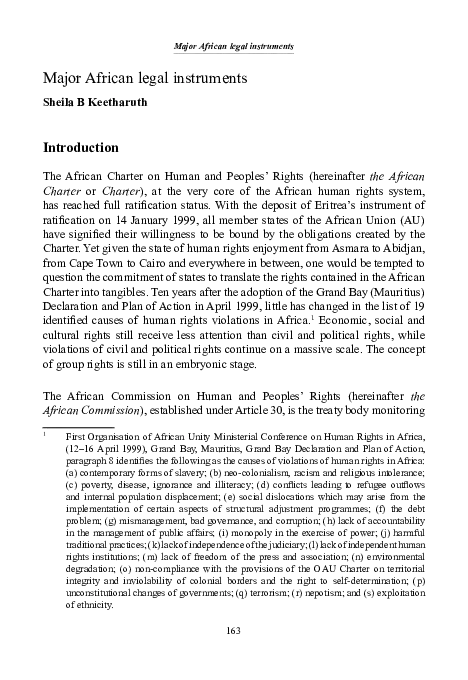The African Charter on Human and Peoples’ Rights (hereinafter the African Charter or Charter), at the very core of the African human rights system, has reached full ratification status. With the deposit of Eritrea’s instrument of ratification on 14 January 1999, all member states of the African Union (AU) have signified their willingness to be bound by the obligations created by the
Charter. Yet given the state of human rights enjoyment from Asmara to Abidjan, from Cape Town to Cairo and everywhere in between, one would be tempted to question the commitment of states to translate the rights contained in the African Charter into tangibles. Ten years after the adoption of the Grand Bay (Mauritius) Declaration and Plan of Action in April 1999, little has changed in the list of 19 identified causes of human rights violations in Africa.1 Economic, social and cultural rights still receive less attention than civil and political rights, while violations of civil and political rights continue on a massive scale. The concept of group rights is still in an embryonic stage.
Who we are
What we do
Major African legal instruments

Publications

